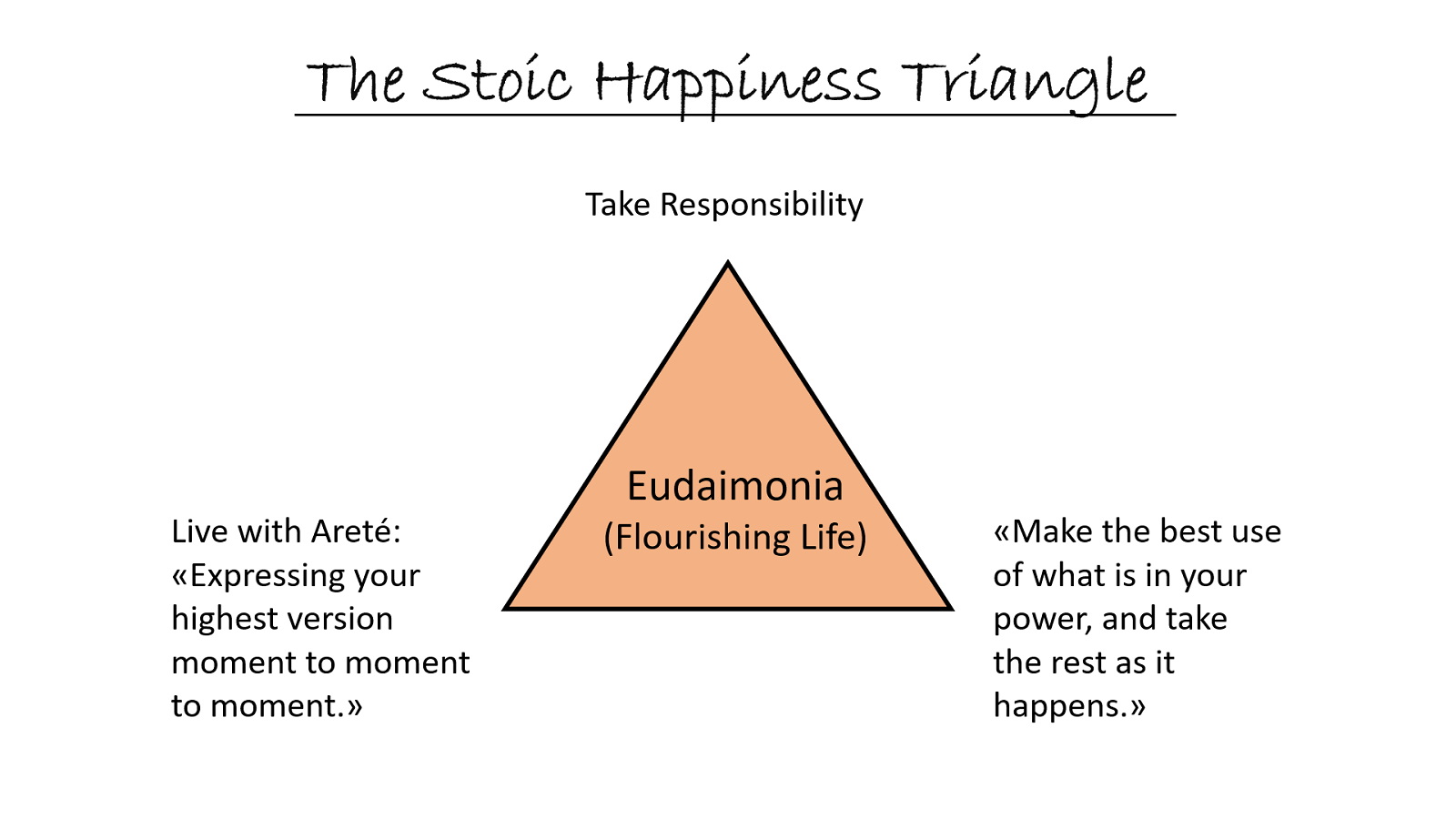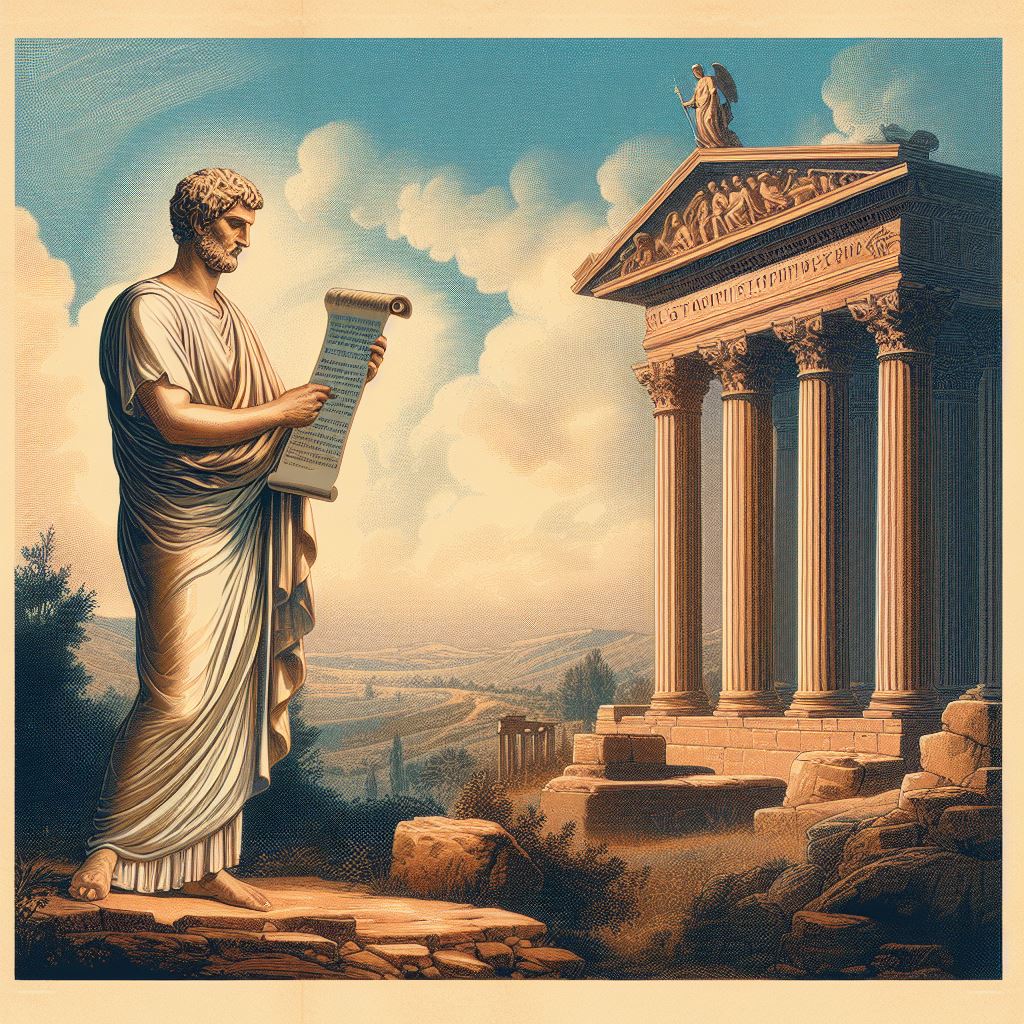Stoicism, an ancient philosophy founded in Athens in the 3rd century B.C., has long been acclaimed for its practical wisdom and focus on personal development. Its principles have transcended time and continue to resonate with individuals seeking a more enriched and fulfilling everyday life. In this article, we explore the practical application of Stoicism in modern philosophy. By delving into its core principles and examining how they can be harnessed to enhance our daily existence, we embark on a journey towards a more resilient mindset, a greater sense of tranquility, and ultimately, a truly fulfilling life in our hectic modern world.
1. Understanding Stoic Principles and Their Relevance in Contemporary Life
- Stoicism, an ancient philosophy developed in Greece, offers timeless wisdom for navigating the complexities of modern life.
- Rooted in the belief that we have control over our thoughts and actions, Stoic principles encourage us to focus on what is within our power and let go of what is not.
- By cultivating virtues such as wisdom, courage, and temperance, we can develop resilience and find inner peace amidst life’s challenges.
- In an era marked by constant change and uncertainty, exploring Stoic philosophy can provide valuable insights to help navigate the complexities of contemporary life.
2. Incorporating Stoic Philosophy for Personal Growth and Resilience in the Modern World
- In a world that often feels chaotic and overwhelming, Stoic philosophy offers a path to personal growth and resilience.
- By embracing the Stoic ideals of self-mastery, acceptance of fate, and focusing on the present moment, we can cultivate a sense of inner strength and tranquility.
- Stoicism teaches us to detach ourselves from external circumstances and instead focus on developing virtuous character traits.
- By practicing Stoic principles, we can develop resilience, adaptability, and a deeper understanding of ourselves, enabling us to thrive in the modern world.
3. The Stoic Way: Practical Techniques for Cultivating Inner Peace and Serenity in Daily Life
- The Stoic way of life provides practical techniques for cultivating inner peace and serenity amidst the busyness of daily life.
- One such technique is negative visualization, which involves imagining worst-case scenarios to cultivate gratitude for the present moment.
- Another powerful practice is the discipline of desire, which teaches us to align our desires with what is within our control.
- By embracing Stoic habits like journaling, reflection, and self-examination, we can develop a deeper understanding of our own thoughts and emotions, leading to a greater sense of tranquility and contentment in our lives.
4. Stoicism in the Digital Age: Harnessing Ancient Wisdom for a Balanced and Meaningful Existence
- In an era dominated by technology and constant connectivity, Stoicism offers a much-needed antidote.
- By harnessing the ancient wisdom of Stoic philosophy, we can navigate the digital age with mindfulness and intention.
- Stoic teachings emphasize the importance of moderation, self-control, and detachment from external outcomes.
- By consciously limiting our exposure to distractions, cultivating a sense of presence, and practicing the Stoic principles of virtue and wisdom, we can find balance and meaning in our digital lives, ensuring that technology serves us, rather than dictates our existence.
5. Applying Stoic Values for Improved Decision-Making and Emotional Well-being in Today’s Society
- The principles of Stoicism can significantly enhance decision-making and emotional well-being in today’s fast-paced society.
- By adopting Stoic values such as reason, self-discipline, and resilience, we can make better choices and navigate challenging situations with greater clarity and composure.
- Stoic ethics prompt us to focus on our own actions and virtues rather than external events, reducing reliance on external validation.
- Moreover, Stoicism teaches us to question our own emotions and judgments, enabling us to respond more effectively to conflicts and adversity.
- By applying Stoic values, we can cultivate emotional resilience and make sound decisions that align with our values and goals.
Stoicism and Modern Philosophy for Everyday Life
Stoicism and Modern Philosophy for Everyday Life is a topic that explores the application of Stoic principles in contemporary situations. Stoicism is a philosophical school of thought that originated in ancient Greece and emphasizes the importance of virtue, resilience, and acceptance of the things that are beyond our control.
Related Points:
-
Stoicism in everyday life
This aspect focuses on integrating Stoic teachings and practices into our daily routines and overcoming challenges. It involves applying concepts such as the dichotomy of control, mindfulness, and the practice of gratitude to cultivate peace of mind and live a more fulfilling life.
-
Stoicism’s influence on modern philosophy
Many modern philosophers have drawn inspiration from Stoic principles and incorporated them into their work. This includes thinkers like Friedrich Nietzsche, Michel Foucault, and Pierre Hadot, who explore Stoicism’s relevance in areas such as ethics, self-discipline, and personal development.
-
Stoic practices for personal growth
Stoicism offers practical tools for self-improvement, resilience, and stress management. These may include techniques like journaling, self-reflection, reading Stoic literature, and implementing philosophical exercises to develop emotional awareness and equanimity.
-
Stoicism and psychological well-being
Studies have shown that Stoicism can be beneficial for mental health and well-being. Its emphasis on accepting the present moment, cultivating gratitude, and reframing negative thoughts aligns with principles found in cognitive-behavioral therapy (CBT) and mindfulness-based interventions.
-
Stoicism in the workplace
Stoic principles can be applied in various professional contexts as well. From coping with difficult colleagues and handling workplace stress to fostering a sense of purpose and resilience, Stoicism offers valuable insights into navigating the modern work environment.
-
Stoicism in modern literature and media
There is growing interest in using Stoic philosophy as a theme in contemporary literature, movies, and other forms of media. Works like Ryan Holiday’s “The Daily Stoic” and William B. Irvine’s “A Guide to the Good Life” have gained popularity in introducing Stoic concepts to a wider audience.
By exploring these related points, you can gain a deeper understanding of how Stoic philosophy can be applied in modern times for personal growth, well-being, and philosophical exploration.

In Conclusion: The Practical Application of Stoicism in Modern Philosophy
In conclusion, the practical application of Stoicism in modern philosophy has proven to be instrumental in enhancing everyday living for millions of individuals. By adopting the mindset and principles of Stoicism, individuals can cultivate resilience, find inner peace, and navigate through the complexities of modern life with greater ease. Stoicism’s emphasis on focusing on what is within our control, accepting and embracing change, and maintaining a virtuous character have become indispensable tools for personal growth and self-improvement.
Furthermore, Stoicism’s relevance extends beyond individuals, with its principles permeating various aspects of society. Stoic philosophies have been incorporated into mental health therapies, educational programs, and leadership training, affirming its applicability in different contexts. Moreover, the Stoic emphasis on empathy, justice, and living in accordance with nature fosters personal and collective well-being, enabling individuals to contribute positively to their communities.
However, it is important to acknowledge that adopting Stoicism is not a one-size-fits-all solution, and its practical application requires continuous practice and adaptation. It is essential to find a balance between embracing Stoic principles and recognizing the nuances and complexity of human experiences. Stoicism should not be seen as a means to suppress emotions or neglect the value of vulnerability, but rather as a guiding philosophy to foster resilience and inner strength.
In a world that often feels chaotic and overwhelming, the practical application of Stoicism offers a beacon of light and serenity. It empowers individuals to confront life’s challenges with grace and wisdom, enabling them to lead more fulfilling and meaningful lives. By merging ancient wisdom with modern philosophy, Stoicism continues to hold profound relevance in enhancing everyday living, making it a philosophy worth exploring and embracing in the pursuit of personal growth and self-realization.
